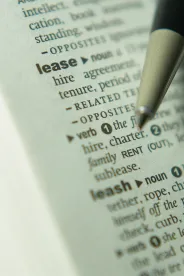California Governor Jerry Brown signed Assembly Bill 2093 into law as part of an ongoing legislative agenda to curb the number of disability related lawsuits. Prior to Assembly Bill 2093, Cal. Civ. Code § 1938 required commercial property owners to state whether a CASp (Certified Access Specialist) has determined whether the premises are in compliance with accessibility standards and to make any existing report available to tenants.
The new provision is more tenant-favorable, and among the rights granted it allows tenants to: request an inspection of the premises if a CASp has not issued a certificate of compliance, receive copies of the inspection report if an inspection has been performed, and rescind a fully executed document if the property owner fails to close the results of a report 48 hours prior to execution. Furthermore, there is a presumption that the property owner is responsible for the costs of an inspection and any repairs needed to bring the premises into compliance with accessibility standards. However, the parties can negotiate otherwise so property owners should take care when drafting leasing documents to spell out the terms governing the time and manner of an inspection and allocation of costs between the parties.
Discussion
The portions of the code governing disclosure of inspection reports and certificates of compliance are effective immediately. Furthermore, effective Jan. 1, 2017, property owners must include statutory specific language in their lease documents notifying tenants of their right to request a CASp inspection if one has not been performed.
It is important to note that the law does not require the premises to be inspected by a CASp, rather it provides tenant a right to request one. Moreover, tenants’ rights with regard to the inspection only extend to the premises to be leased and not to the entire property or building as a whole.
Statutory Language Requirement.
Effective Jan. 1, 2017, if the premises has not been issued a CASp certificate, the property owner must incorporate language in the lease documents with the following statutory language which gives the tenant the right to request a CASp inspection:
"A Certified Access Specialist (CASp) can inspect the subject premises and determine whether the subject premises comply with all of the applicable construction-related accessibility standards under state law. Although state law does not require a CASp inspection of the subject premises, the commercial property owner or lessor may not prohibit the lessee or tenant from obtaining a CASp inspection of the subject premises for the occupancy or potential occupancy of the lessee or tenant, if requested by the lessee or tenant. The parties shall mutually agree on the arrangements for the time and manner of the CASp inspection, the payment of the fee for the CASp inspection, and the cost of making any repairs to correct violations of the construction-related accessibility standards within the premises."
The property owner should take care to further define the “time and manner” of the inspection. In addition, the new code presumes that the property owner will pay for the costs of the inspection and repairs, but the property owner can rebut this presumption by including language in the lease that passes these costs to the tenant. The property owner may wish to settle the terms of an inspection during pre-lease negotiations to streamline the drafting of the lease documents.
Disclosure Requirement.
If the premises has been inspected, disclosure of the underlying report is of the utmost importance. Failure to disclose a report that shows the premises requires repairs gives the tenant the right to rescind a fully executed lease document.
If the report shows that repairs are required to bring the premises in compliance with accessibility standards, the property owner must give a copy of that report to the tenant at least 48 hours prior to executing the lease document. Failure to do so will give the tenant a right to rescind the lease up to 72 hours after execution. Tenants must agree to keep the findings of the report confidential, except to the extent necessary for the parties to complete repairs to bring the premises in compliance with the accessibility standards. The new code includes a presumption that these repairs will be performed at the property owner’s expense, however, the property owner can negotiate to pass these costs to the tenant. In conjunction with providing a copy of the report, the property owner must advise the tenant and represent in the lease whether there have been any modifications or alterations to the premises that would impact the findings in the inspection report.
For an inspection performed where the premises is found to be in compliance and a certificate has been issued, the property owner must disclose a copy of the report 48 hours prior to execution and provide a copy of the certificate within 7 days after execution. The new code is not clear whether the property must owner must also deliver a copy of the report 48 hours prior to execution if the CASp issued a certificate of compliance. However, given the harsh rescission penalty for failure to disclose uncertified reports, it is strongly advised that the property owner continue to provide the certified report within the 48-hour window.
Furthermore, even if a certificate exists, the property owner must offer a representation that the premises have not been altered in a manner that would impact the results of the report.
Follow Up Items
-
For those premises that have not undergone a CASp inspection or have undergone an inspection, but no certificate was issued, property owners should incorporate the new statutory language into their lease forms along with provisions which further define the time, manner and cost allocation of the inspection.
-
If the premises have undergone an inspection, property owners must determine whether the premises has been altered in a manner that would impact the findings of the report and be prepared to draft careful representations that account for the discrepancies that may exist between the inspection report and the present-day condition of the premises.
-
Property owners should be prepared to negotiate the terms of an inspection with other terms that are incorporated in letters of intent and other pre-lease negotiations and set aside funds if repairs are required.
-
Property owners should review other portions of their lease form that may be impacted by Cal. Civ. Code § 1938. Indemnity provisions, for example, may need to be amended to account for the conduct of a CASp’s inspection of the premises and repair persons. Confidentiality provisions should include language requiring the tenant to keep the results of a CASp report confidential. Tenants may incorrectly presume that the new law requires the premises to be in compliance with accessibility standards or may request additional representations that the premises are in compliance, but property owners should be cautious in including such language given the ever-changing nature of commercial property premises.




 />i
/>i